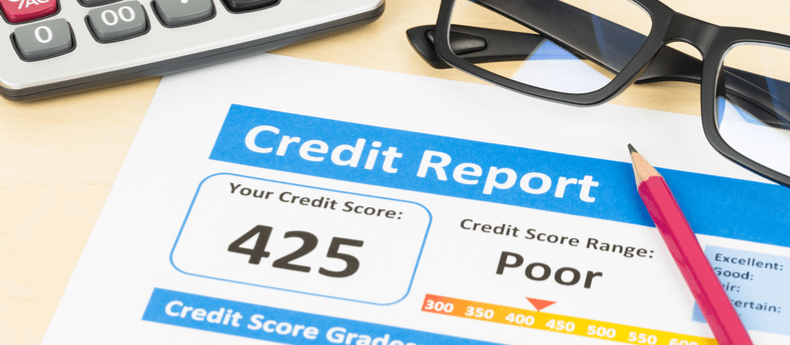Planning To Get A Home Loan? Here’s All You Need To Know
Two things are most likely to happen in your adult life. First, one of the most significant purchases you make in your whole life is going to be your own home. Second, that big purchase of yours would be partly financed by a bank, in the form of a mortgage or loan.
Budget is an influential factor in decisions regarding property purchases. Several factors, like job security, residential status, and past credit history, come into play to make the process more intricate. Then there are the millions of loan plans that you’ll have to sift through to arrive at the right one for your needs.
As this decision will have a significant bearing on the rest of your life, you’ll need to do your homework in understanding the nitty-gritty of the process. So, for your convenience, we’ve created a cheat list for you, highlighting the salient points that will play a role in your house purchase.
What Is The Difference Between A Mortgage and A Loan?
A mortgage is similar to a loan. The difference is only conceptual. While a loan refers to an amount you borrow from a financial institution for buying a house, a ‘mortgage’ signifies that the house will be kept as collateral in this deal.
Factors Affecting Loan Eligibility
Loans are influenced by factors like age, job security, and credit history. However, since the amount involved is considerably more extensive compared to other types of loans, there’s added stringency to the process.
Age:
Age plays a factor in determining your eligibility for a loan. Since loan repayment is a process stretched over a long span, older age groups might find it harder to take out huge loans, while the relatively younger ones will quickly check this box.
But one factor that tilts the scale in favour of older age groups is the fact that they, on account of their savings, can put a more significant down payment on the loan, which is what bankers want.
Job Status:
Individuals with a steady flow of income, like salaried employees, will be bumped to the front of the line in this regard. Those with erratic nature of income, such as freelancers and independent businessmen, might need to do some convincing.
Credit Score:
The creditworthiness of the individual is perhaps the most significant factor that determines their fitness for a loan. Having a higher than average credit score is essential.
A spectacular credit score can land you a loan at a discounted rate. But you need not frown if you have a low credit score. There are alternatives, like bad credit loans and loan consolidation, which you can consider.

Loans: Different Types
There are mainly four broad heads under which various loan plans are categorized. The loan rate is fixed by banks individually but is within a range that is close to the base rate that the Bank of England sets. Loan types are differentiated on the variation in their rates, and duration.
Fixed-Rate Loans:
As the name suggests, fixed-rate loans are those which have a fixed rate for the entire duration of the repayment period. The most common are the two and five-year fixed-rate loan plans, in which at the end of the repayment period (the last one or one and a half years), you might be shifted to the bank’s standard variable rate (SVR).
Tracker Loans:
These are a kind of variable-rate loans available in the market. They track the Bank of England’s base rate, and hovers somewhere around it for an introductory period, before shifting to the lender’s SVR. Lifetime tracker loans are also available but are not very popular.
Discount Loans:
Another type of variable-rate loans, discount loans have different features that affect the effective rate of payment.
In a simple discounted loan, you pay the SVR discounted at a particular rate. For instance, if the SVR is 5%, and the discount is 1.5%, the effective repayment rate is 3.5%. Caveats include a collar below which the interest rate, net of discount, cannot fall.
Offset Loans:
The interest charged on your loan is affected by the balance in your savings account. In simpler terms, your current savings offset the amount you have to repay.
Loans with a Bad Credit History
Your credit history is your resume in the world of loans. It is affected by a variety of factors and determines your creditworthiness in the market.
Credit history can be tarnished due to a plethora of reasons, the lighter ones being huge current debt and frequently skipping payment deadlines, while county court judgments (CCJs) and individual voluntary arrangements (IVAs) are graver counts.
Securing a loan with bad credit score can be difficult, but not impossible. While banks may reject your application straight away, housing cooperatives or building societies might be a little more lenient.
Some firms have specific plans for borrowers with bad credit scores, like bad credit loan from CreditSpring. These loans are available in fixed and variable rate types.

Government Support Schemes for Property Purchases
If you’re finding it difficult to secure the right amount of loan for your budget, you can take a look at these federal house buying schemes which might help you:
- Right To Buy: Tenants renting the same property for at least three years in England, Wales and, Northern Ireland are eligible to buy that particular property at a discounted rate, subject to location, and property type.
- Starter Home Scheme: This is an affordable housing scheme initiated by the government to help first-time buyers under the age of 40 to buy houses at a 20% discount rate. Over 200,000 houses are in the inventory.
- Help To Buy: This is a flagship England scheme that allows first-time buyers of houses priced at or below 600,000 pounds to take out a loan worth 20% of the total value of the house, interest-free for the first five years, given that a 5% deposit has been made. In London, the loan rate jumps up to 40%.
In Conclusion
If you’re a first-time buyer, you can find navigating through the thicket of loan schemes and processes a little tedious, but this guide would familiarize you with the basic concepts which ultimately shape your decision.
There are several types of loan plans, and you’ll need to figure out the right scheme for yourself in accordance with your income stability.














